cotton industry
-
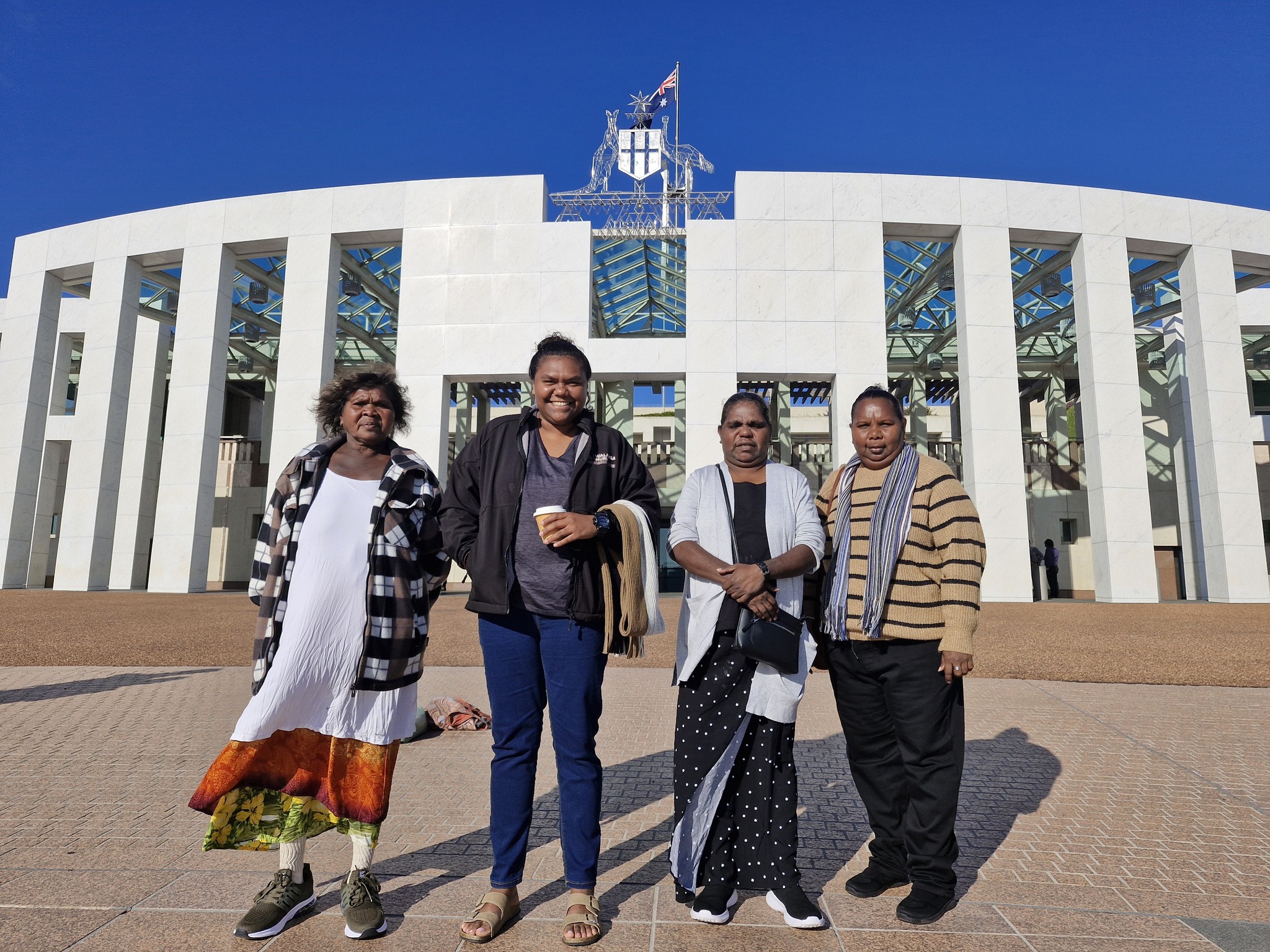
Canberra is finally listening
Learn moreThis week we put the voices of the Territory on the national stage. Traditional Owners, experts and environment groups were in Canberra this week, raising the alarm about the threats facing the Territory’s rivers.
We met with Ministers, MPs, Senators and spoke to the media to make sure that the voices of Territorians and Traditional Owners are heard over the lobbying of big business. And Parliament listened!
Thanks to pressure from people like you, Parliament has established a special inquiry into water, food and energy security in the Northern Territory. And we won a public commitment from Minister for Indigenous Australians, Malarndirri McCarthy to advocate for First Nations people to have a say in decision-making across the Roper River catchment.
Our campaign is breaking through in Canberra as the government feels the pressure from Territorians who don’t want a repeat of the Murray-Darling disaster on Territory rivers.
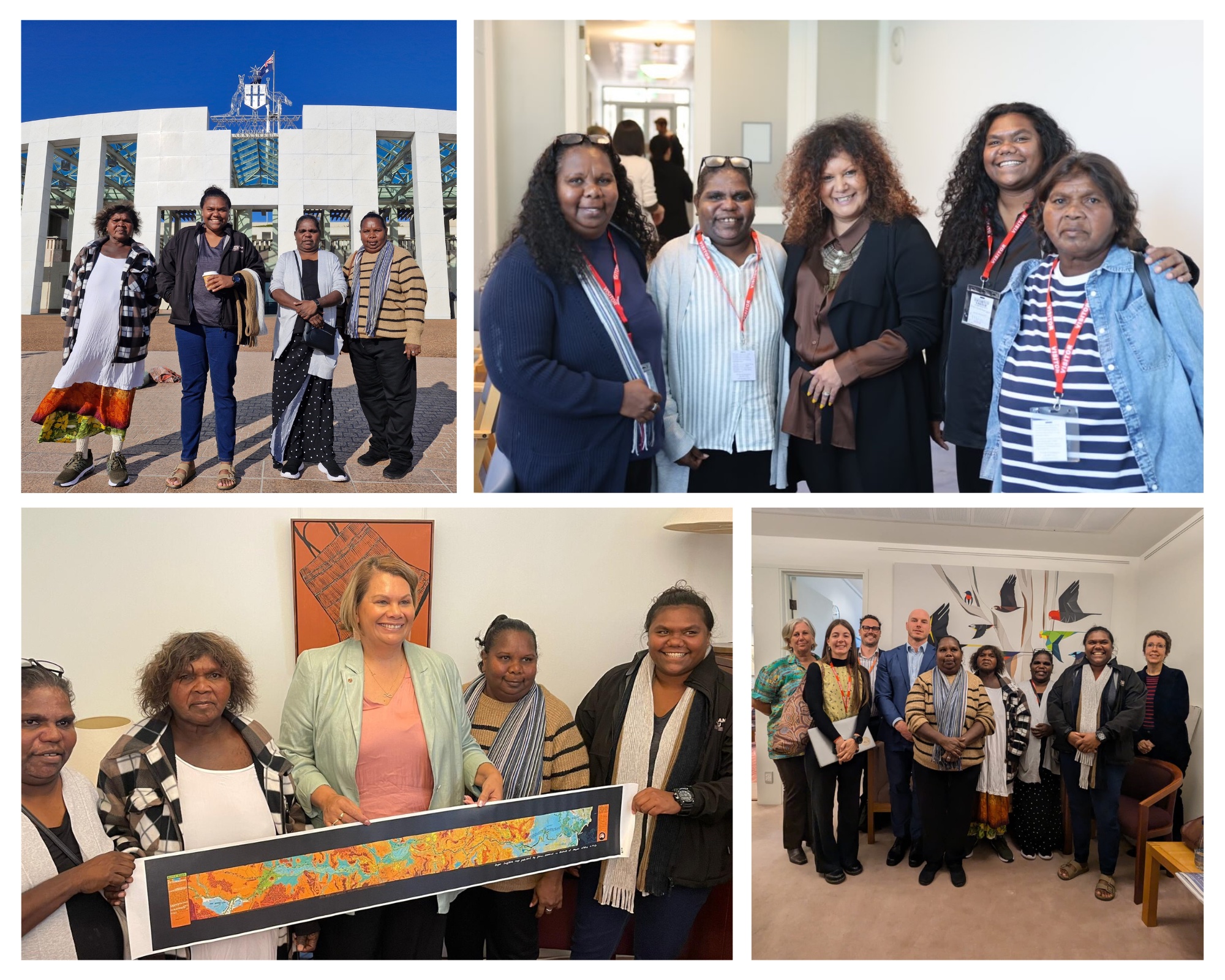 Traditional Owners Jocelyn James (Mangarrayi), Melissa Andrews (Ngukurr), Cecilia Lake (Mangarrayi), Anne-Marie Woods (Mangarrayi) meet with Minister Malarndirri McCarthy (top right), Senator Dorinda Cox (bottom left) and Senator David Pocock (bottom right).
Traditional Owners Jocelyn James (Mangarrayi), Melissa Andrews (Ngukurr), Cecilia Lake (Mangarrayi), Anne-Marie Woods (Mangarrayi) meet with Minister Malarndirri McCarthy (top right), Senator Dorinda Cox (bottom left) and Senator David Pocock (bottom right).But the work doesn’t stop here. We know that the cotton industry will be desperate to influence this inquiry. And we need to make sure that the voices of Territorians can be heard over the influence of big business.
Share the good news on your social media and ask your friends to join the campaign!
We will be keeping a close eye on this inquiry, working to support communities to have an increased say on decisions across the Roper catchment and keeping you updated on when you can have an influence.
We need urgent action to restore integrity to the NT’s water management system, which has been riddled with conflicts of interest. As the cotton industry sets its sights on the Northern Territory, now more than ever, we need better management systems and laws that protect these unique rivers.
Our campaign is working. Not even the politicians in Canberra can ignore the threats facing the Territory rivers. We know how important these rivers are to our way of life and environment and it’s about time more politicians did too.
cotton, cotton industry, land clearing, murraydarlingbasin, roper river, Territory rivers
-
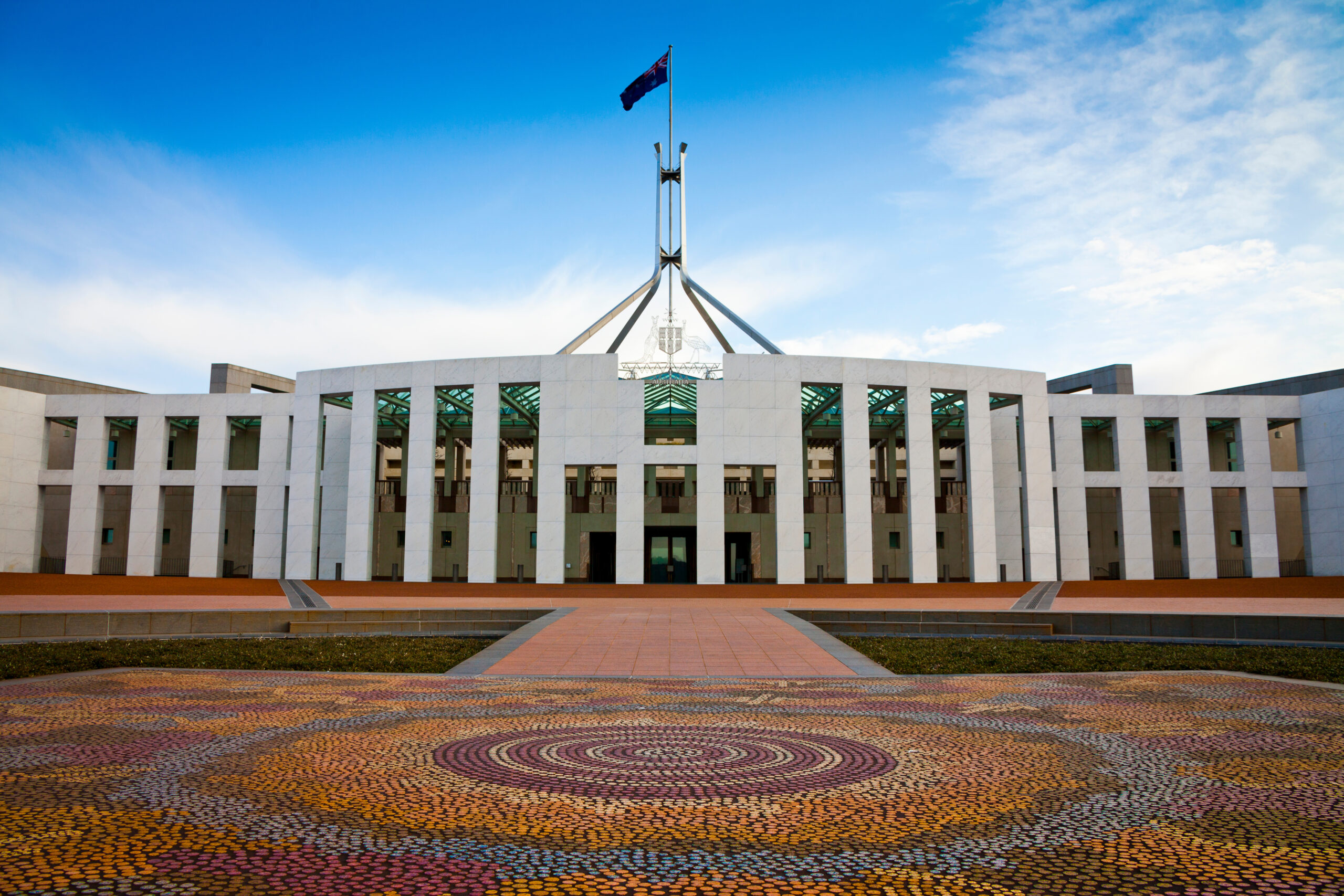
We’re taking your message to Canberra
Learn moreEvery Territorian knows how special the Top End Rivers are. The way of life that we all love is made possible because of these free flowing rivers and the unique environment they sustain.
But these rivers are under threat. Big business has been taking advantage of a broken water management system riddled with conflicts of interest to take more water and bulldoze more land alongside our iconic rivers.
Right now Traditional Owners and environmental groups are in Canberra to meet with the government and push for a national plan to protect our free flowing rivers. Will you have their back?
You can add your voice to the call for national action and make sure that Canberra can’t ignore us. The more people who contact the government, the more powerful our actions Canberra will be.
Be a voice for free flowing rivers. Send your message now.
The recent 4 Corners investigation revealed just how broken river management in the NT is. And the community has had enough.
The rivers of Australia’s north are some of the last free flowing tropical rivers in the world. They are precious to the people of the NT and internally recognised. We’ve all seen what has happened to the Murray Darling system. We can’t let that happen in the NT.
We need the Federal Government to step in and prevent this disaster before it’s too late.
-
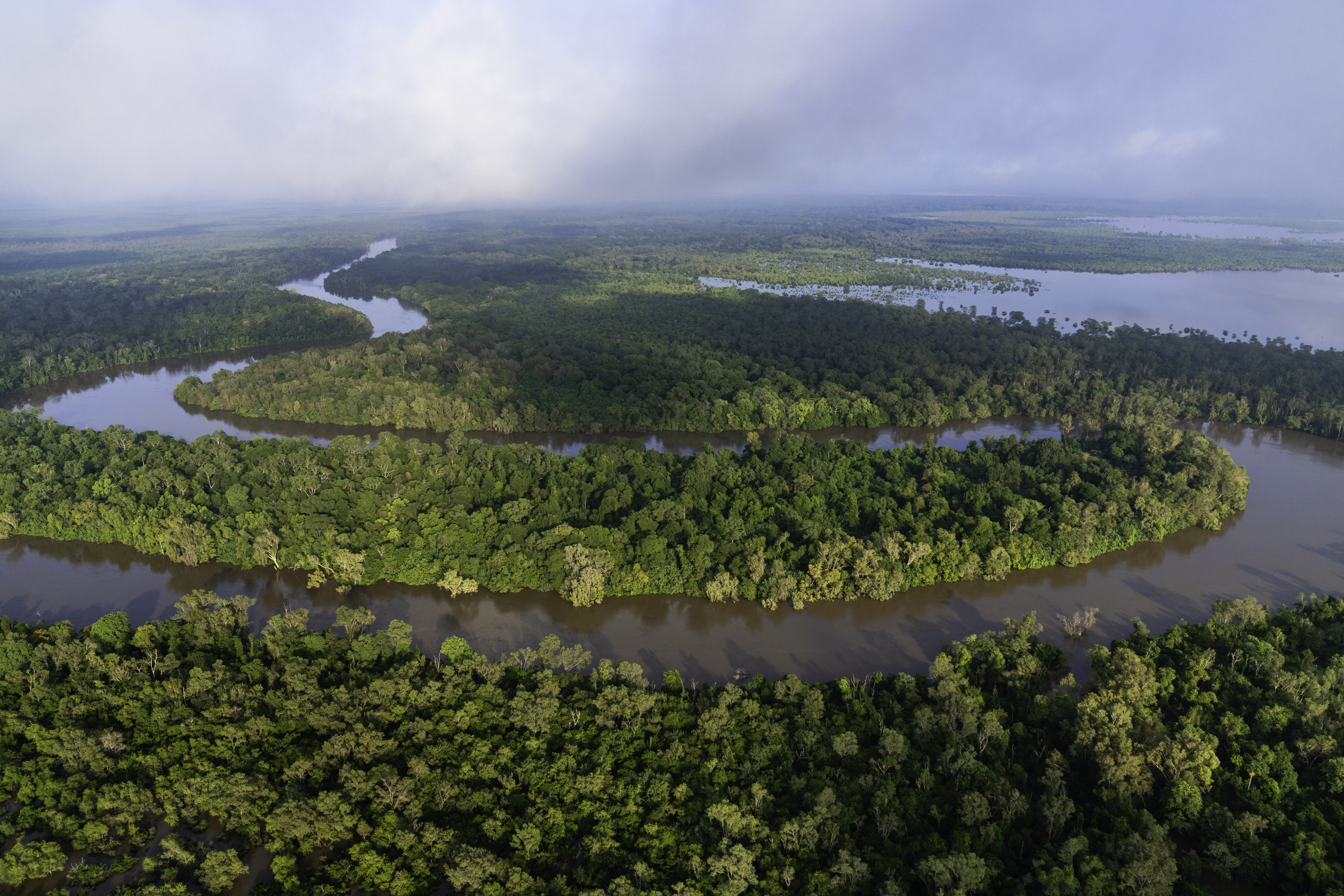
Political parties announce no new dams on major rivers
Learn moreAll major NT political parties have now listened and committed to what communities have long been calling for – no dams on iconic rivers like the Daly and Roper.
This important, historic step from all sides of politics towards protecting our rivers is thanks to thousands of people like you, who have asked parties and candidates to commit to:
- No new dams on the Daly and Roper rivers
- Increased community decision-making over water issues
- Strong laws that protect our rivers
See the headline responses from the parties below.

Country Liberal Party
The Country Liberal Party categorically say no to dams in flowing rivers.
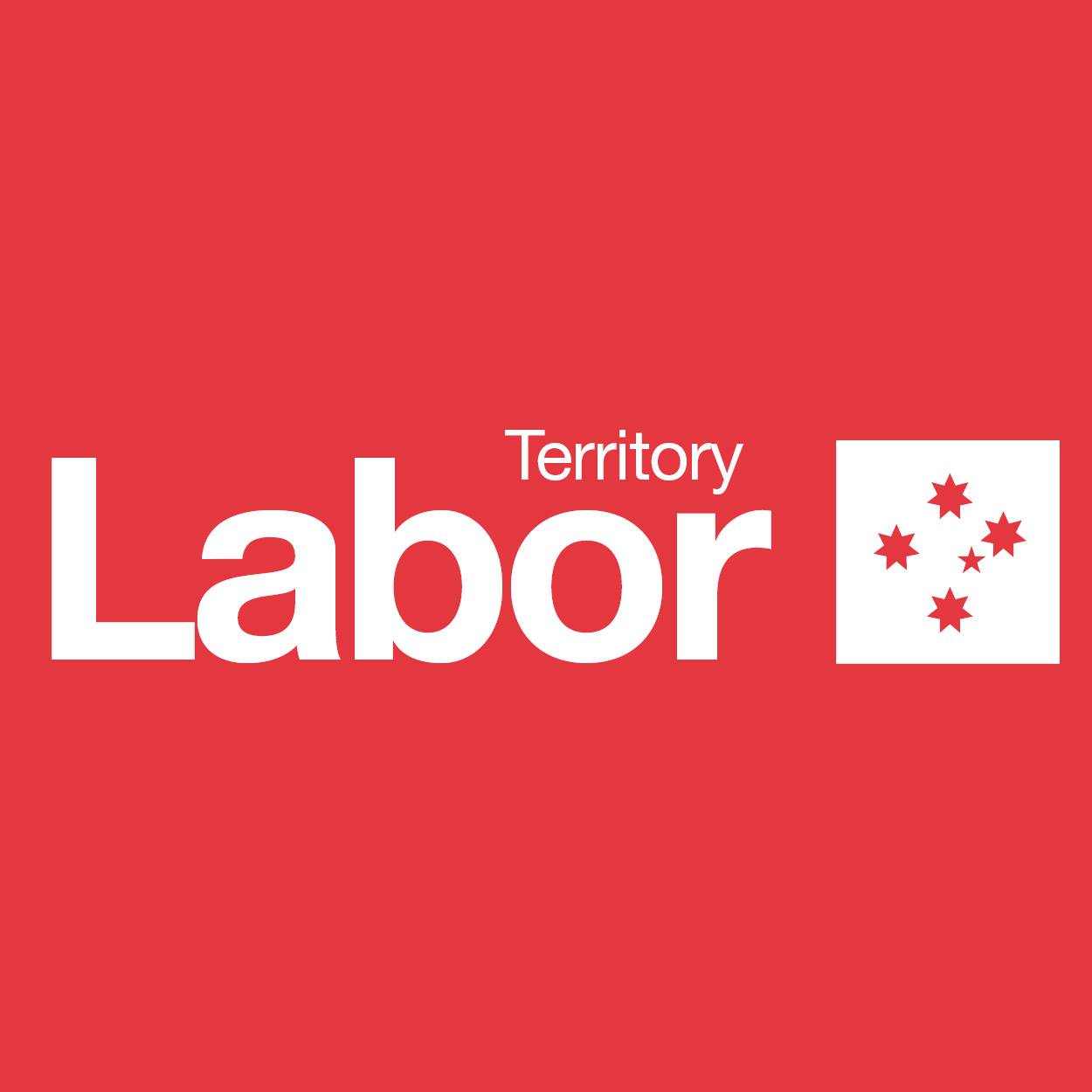
Territory Labor
Territory Labor will ensure there will be no dams on the Daly and Roper rivers … with specific regulations and legally binding measures through reforms to the Water Act.

NT Greens
The Greens commit to ensuring the Daly and Roper Rivers run free, [and] to no dams.
[This] must include stopping dams from being built at scale in floodplain catchments.CLP full response
- ‘We agree with you that Northern Territory rivers are central to our great lifestyle. The Northern Territory stands at a critical juncture, where we need decisive action to propel our economy forward while preserving our unique environment and lifestyle.
- Our focus remains on giving the Territory a competitive edge exemplified by streamlined project execution and reduced approval timeframes.
- In the face of pressing environmental challenges, we stand firm in our commitment to responsible, sustainable, economic growth.
- The Country Liberal Party categorically say no to dams in flowing rivers.’
Labor full response
- We will ensure there will be no dams on the Daly or Roper Rivers – a protection we will enact with specific regulations and legally binding measures through reforms to the Water Act and related regulations.
- Continue to develop and embed an Aboriginal Water Security Advisory Council in water-related decision-making processes, ensuring Aboriginal Territorians have a voice on strategic water issues and enhancing Aboriginal participation in decisions around water.
- Continue to partner with Aboriginal Land Councils and work with Traditional Owners across the Territory to establish contemporary approaches to incorporating recognition of the diverse cultural values of water in our policy and legislative frameworks.
- Further develop approaches to Strategic Aboriginal Water Reserves in consultation with Traditional Owners. Resource Aboriginal Community Water Officers, to work in partnership with Rangers, in a water monitoring capacity.
- Deliver remote water infrastructure projects for an additional eight communities, in collaboration with the Australian Government and local Aboriginal people.
- Legislate new Water Act by 2026, contemporising our water legislation which will provide further protection to rivers, aquifers and wetlands.
- Continue to strengthen the Territory’s Water Allocation Planning Framework, ensuring a contemporary balance between protecting environmental and cultural values and sustainable water availability for economic development.
- Introduce landmark safe drinking water legislation to the Parliament in 2024.
Greens full response
- The Greens commit to ensuring the Daly and Roper Rivers run free. We commit to no dams on the Daly and the Roper. A No Dams policy must include stopping dams from being built at scale in the floodplain catchment of these two rivers, or it’s not a real No Dams policy. The evidence is clear that Wet Season flushes of the catchment are vital to the health of the rivers and to the lifecycle of important species, including barramundi and prawns, as well as less well-known species. Floodplain harvesting, and especially at the scale planned by the cotton industry, would be a disaster for the Daly and the Roper. In Parliament, we would pursue an effective ban on floodplain harvesting at scale and shine a light on the connections between the big cotton corporations and the major parties. We challenge the other parties to make it clear that they support a ban on floodplain harvesting at scale in the Daly and Roper catchments.
- The message from Traditional Owners, ecologists and other members of the community is clear: the current rates of industrial water extraction from the Daly and Roper Rivers are already having a major impact. Corporate interests like the cotton and fracking companies want to massively increase this take. NT Governments of both major parties have given away far too much Territory water to big corporations for free, with shoddy environmental assessment and for little community benefit. We commit to no additional allocations from the Daly and Roper catchments for exploitation until an independent public review is complete. We also commit to a review of existing licenses and their impacts on the rivers, and to enacting binding limits on water extraction. You can review our nature and water policy here.
- We also commit to a ban on fracking and to oppose the cotton corporations’ plans for a massive Murray-Darling style expansion in the Top End. These industries are known to be voracious for their water appetite, and we share the community concern that their existing plans for extraction are the thin edge of the wedge. The Greens will always work with the community to protect our rivers.
- We commit to overhauling the Territory’s water laws to protect rivers, groundwater and wetlands. The current Water Act and water plans are totally unable to protect the Territory’s rivers or groundwater dependent waterholes, trees and soaks. The new, overhauled water laws must include specific legal designations and protections for special rivers like the Daly and the Roper, and for aquifers and wetlands. The Greens have a track record of being the party that works for better protections for water nationwide. In 2023, we negotiated better water protections through the federal Parliament that mean that all Territory fracking projects can be assessed and stopped by the federal Environment Minister. In the Territory Parliament, the Greens would work tirelessly to secure better protections for water in the NT.
- Land clearing is one of the major drivers of biodiversity loss, erosion and degradation in the Territory. Our rivers, savannas and climate are under threat from the current almost unregulated approach from NT Governments of both major parties. We commit to buffer zones of at least 2km to protect rivers from the impacts of land clearing, with larger areas considered to protect sensitive habitat and cultural values. These buffer zones must be clearly defined and binding – and be matched by resources to enforce them. Our policy platform also includes other key pieces of the puzzle to wind back the march of rampant land clearing. We commit to work with other parties to bring in an NT Biodiversity Act that would protect intact native vegetation for the first time, and an NT Biodiversity Strategy to inform research and action to protect nature here. We also commit to taking land clearing approval out of the hands of the Pastoral Land Board, and referring all major land clearing projects instead to the NT Environmental Protection Agency.
- Traditional Owners and local communities understand the needs of our rivers and understand their own needs. We commit to sustained, targeted financial support for local communities to make decisions about the future of the rivers where they live. The example of Martuwarra Fitzroy River over the border in WA shows a path to long term, community led decision-making for tropical flooding free flowing rivers. That model requires consistent, targeted support. We need the NT Government to partner with the federal government to deliver new models of river governance that fund local decision-making and formally recognise the significant values of the Territory’s rivers.
You can read the full list of policy priorities we sent to political parties and candidates here.
We also received responses from independent candidates:
Justine Davis
Independent for Johnston“The protection of our rivers is critical and Justine supports all of the recommendations outlined in the [Territory Rivers] letter.”
Sam Phelan
Independent for Katherine“I fully support your asks, however would like a more nuanced discussion about the practicalities of NO new dams on the Roper and Daly. I fully support no mega dams on these rivers, and the exercising of much more caution in regards the surface water take wet season flow policy currently in play. We have seen what has happened to the Murray Darling, and we cannot allow the same mistakes to be made here. Independent science is crucial to this discussion and must be respected.”
It’s clear Territorians value our rivers, and we will continue to work on securing long-term protections for our rivers, including new models led by First Nations people, and new water laws led by communities. We must act now to avoid a Murray-Darling disaster.
Territory Rivers – Keep ‘em Flowing is non-partisan, we will never issue advice on how to vote. We are committed to working with all sides of politics at all times to secure the best outcomes for our rivers.
cotton, cotton industry, Daly River, murraydarlingbasin, NT Government, roper river
-
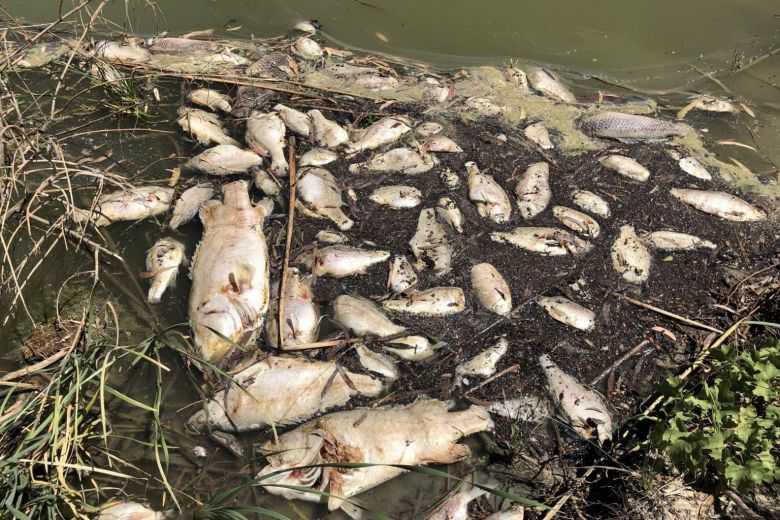
‘Fix the Murray-Darling mess or get out of the Territory’
Learn moreCotton concerns for Top End water prominent for NT residents
Media Release
11 June 2024
A prominent environmental campaign is urgently calling for better protections for major Top End river systems following new polling which shows the threat posed to Territory rivers by large-scale cotton operations remains a key concern for residents.
“It’s clear residents have serious concerns about the threat posed by large-scale cotton projects in the Top End, which is shining through strongly in these new polling figures,” said Mitch Hart from Territory Rivers – Keep ‘em Flowing.
“The cotton industry’s social license is getting weaker over time, which is at odds with government plans to allocate more water to them. The message from Territorians is clear – this thirsty industry shouldn’t be allowed to expand operations in the Territory until they fix up their mess in the Murray-Darling basin,” Mr Hart said.- 72.5% of Territorians polled said that the cotton industry shouldn’t be allowed to expand operations the Territory until they fix up their mess in the Murray-Darling basin.
- 59.3% oppose the establishment of a large-scale cotton industry in the Top End, including proposals to extract of 520 billion litres of water from the Douglas Daly as per the 2020 economic analysis by NT Farmers Association
- More than 80% of Labor voters and 62% of CLP voters polled are opposed to cotton expansion in the Top End
“It’s concerning to see big business push for more water from floodplains and more land clearing and the NT Government taking the same approach in the Territory which has contributed to the devastation of the Murray Darling Basin – Territorians don’t want to make the same mistakes here.”
“This is why we are asking for government to commit to no more dams on our free-flowing rivers, no more water out of already overallocated systems and binding limits on water extraction.”
“59.5% of respondents stated that they use rivers in the Top End for fishing, boating or other recreational activities, contributing to the $270 million dollars that recreational fishing brings to the NT economy each year.”
“Territorians want a healthy future for our rivers. They care deeply about rivers, water flows for fishing and boating, and are concerned about the threats to our way of life. This industry push for
large-scale cotton would put iconic rivers like the Daly and Roper, and our Territory lifestyle, at risk.”
“The spectre of reduced water flows, pollution and mass fish kills along the Murray Darling is a very real concern for NT residents, with 72% of respondents concerned about large cotton companies being allowed to expand operations in the Territory before they fix the problems they have caused in the Murray Darling.”
“We can’t let our iconic rivers like the Daly and Roper be degraded and destroyed as has happened to other rivers in southern Australia. It’s time for big business and government to start listening to Territorians and do more to look after the health of our rivers, lifestyle and the jobs that rely on their health now and into the future.”
Additional Facts:
- 72.5% say large cotton companies shouldn’t be allowed to expand operations until they fix the problems they have caused in the Murray Darling.
- There is broadly shared concern across the political spectrum regarding the polling question: the cotton industry shouldn’t be allowed to expand operations the Territory until they fix up their mess in the Murray-Darling basin.
o 80.7% of Labor voters
o 62.3% of CLP voters
o 94.2% of Greens voters
o 64.1% of Independent voters
o 83.3% of those intending to vote for other parties - 59.3% are opposed including 47.5% who are strongly opposed to cotton industry plans to take 520 billion litres away from the Daly River each year.
- 32.1% of people listed water extraction as their main concern
- 21% of respondents were most concerned about water pollution
Polling commissioned by the Territory Rivers – Keep ‘em Flowing Alliance undertaken by uComms, who conducted a survey of 1,107 members across Darwin and Palmerston on behalf of Environment Centre NT during the evening of 03rd March – 21st April 2024.
See more information on the polling here.
cotton, cotton industry, northernterritory, NT Government, roperriver
-
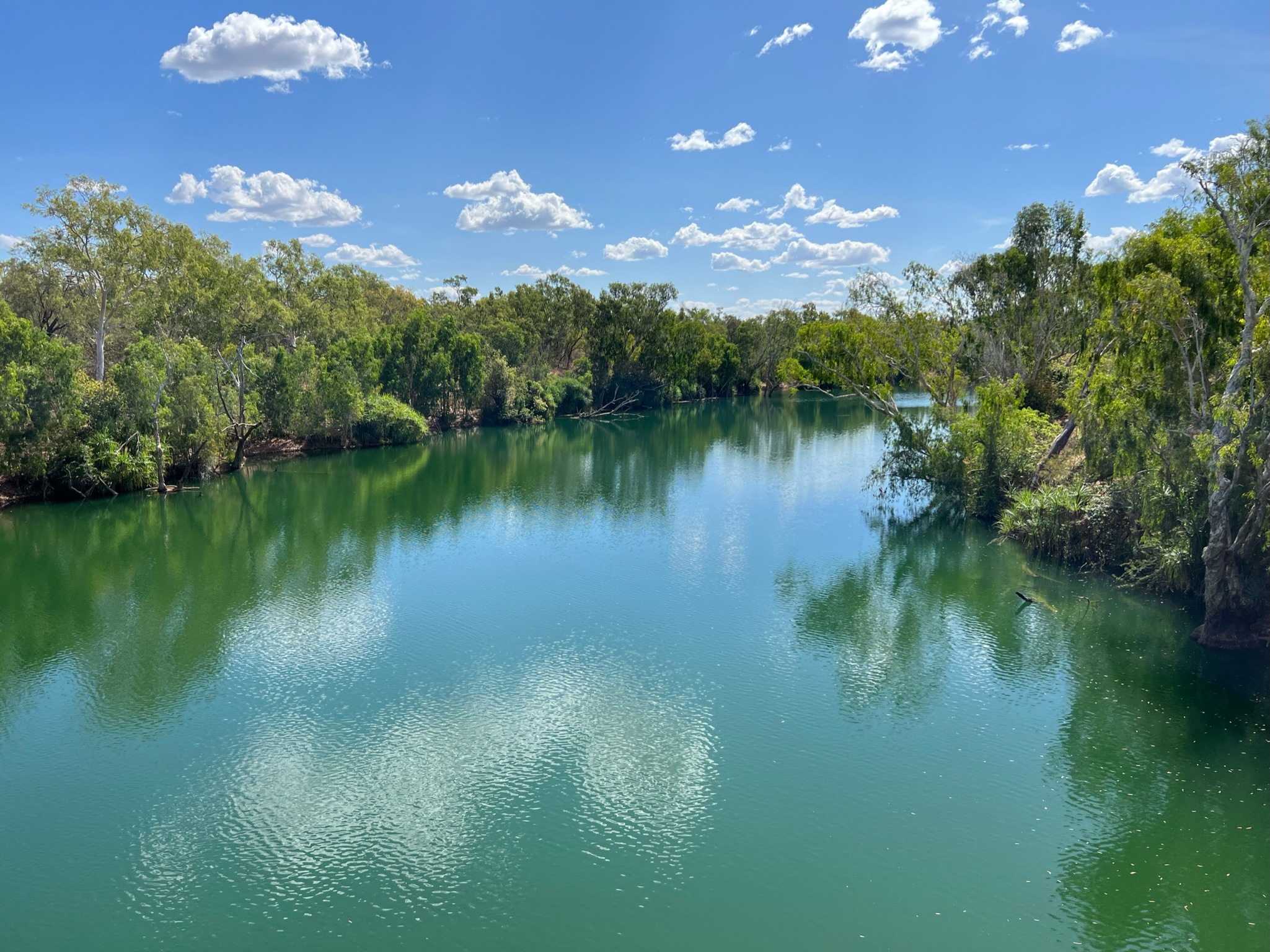
CSIRO report spells out huge risk to Roper River from industry expansion
Learn moreMedia Release
18 April 2024
Water extraction from one of Australia’s last remaining free-flowing rivers – the Roper River, could see a 66,000-fold increase from a massive expansion of irrigated agriculture, according to a new CSIRO report.
The Roper River Water Resource Assessment outlines possible scenarios of 660 billion litres of surface water a year for crops such as cotton, and the requirement of 40,000ha of land cleared across the catchment.
The technical reports examine the possibility of large-scale floodplain harvesting across the Roper Catchment, as well as the cumulative impacts of up to five in-stream dams, including a hydroelectric dam on the Wilton River near Ngukurr.
“This report highlights the huge scale of development and the impacts on communities, people and ecosystems that could occur if the Roper River is not protected,” said Pew’s NT Manager Mitch Hart.
The report highlights the importance of community values, stating that the ‘nature and scale of future development of irrigation would depend heavily upon community and government values and acceptance of potential impacts to water‑dependent ecosystems.’
“Thousands of Territorians have already stood up in support of protection for the Roper – including demands that no more water be taken from the river, and no new dams be built.”
“First Nations people along the river have demanded no more water be taken, and for communities to be properly consulted on how their Country and the Roper is protected.”
“Communities want our rivers kept healthy and it’s crucial that the Government now acts to protect the Roper River before it is too late.
“This report talks to the possibility of groundwater extraction from the river system of up to 125 GL, which could have devastating impacts on the future health of the river system. To put this in perspective, this is three times Darwin’s annual drinking water supply.”
The Roper River catchment is under increasing pressure from a string of water allocations made by the NT Government in the past six months. The recently released Georgina Wiso Water Allocation Plan and Surface Water Take – Wet Season Flows Policy, plus the draft Mataranka Tindall Water Allocation Plan allow for more than 280 billion litres to be taken from the Roper River catchment each year.
“Ultimately, this report points to the urgent need for the Roper to have long-term protections in place, avoiding a Murray-Darling style disaster before it’s too late. It’s imperative that governments listen to the voice of communities – particularly First Nations – when it comes to protecting the Roper,” said Mr Hart.cotton, cotton industry, northernterritory, NT Government, roperriver
-
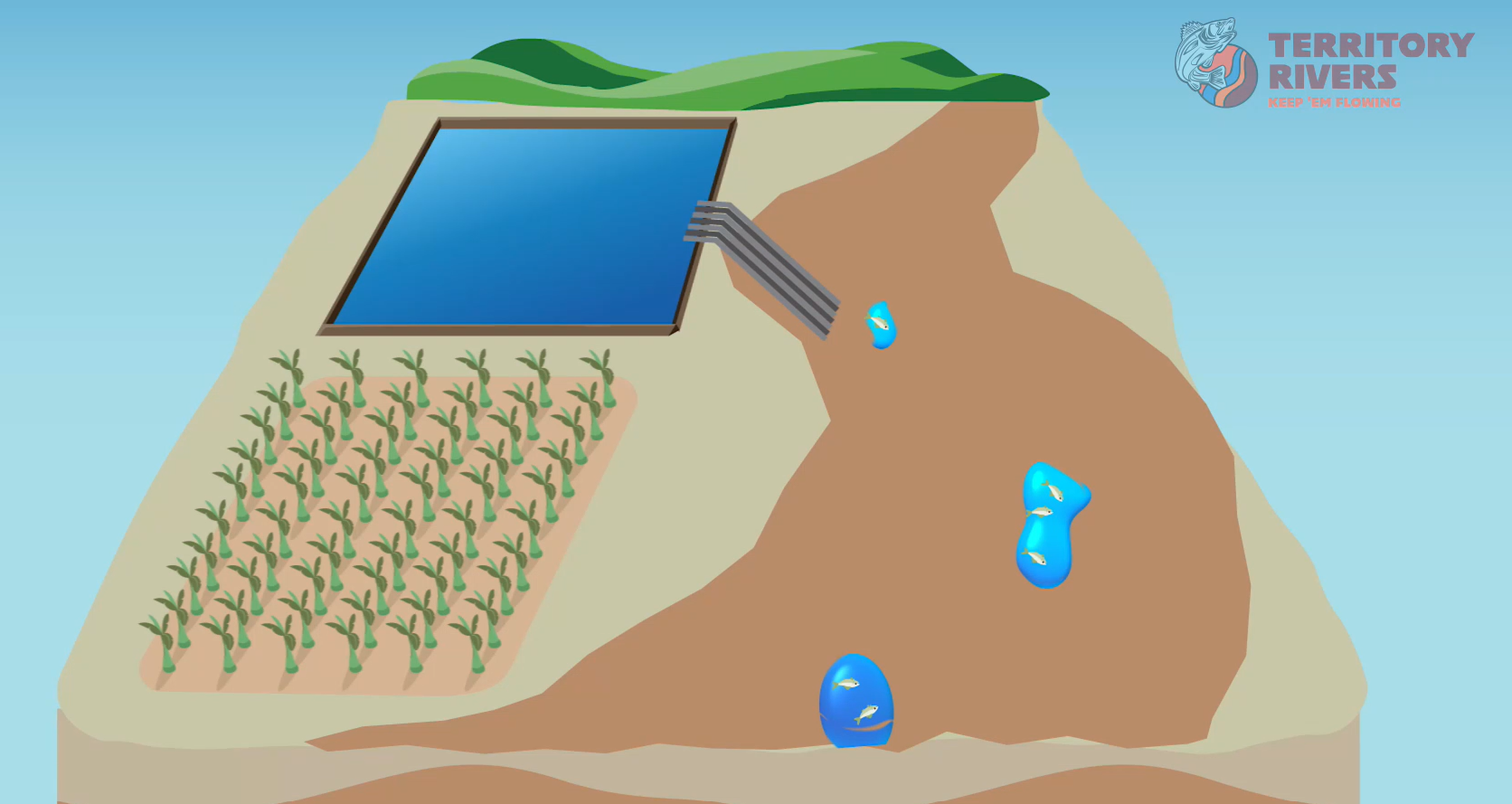
NT ‘FLOODPLAIN HARVESTING’ POLICY RISKS ANOTHER MURRAY-DARLING DISASTER
Learn moreMedia Release
15 February 2024
Today’s release of the Northern Territory Government’s Surface Water Intake – Wet Season Flows Policy will allow billions of litres of surface and floodplain water to be taken from rivers and risks the destruction of rivers like the Daly and Roper.
Environment Centre NT Executive Director, Kirsty Howey:
“Territorians are rightly alarmed about today’s announcement. The NT Government has opened the floodgates for huge amounts of water to be taken by large agribusinesses from our already stressed river systems,” she said.“It’s clear that the NT Government is backing big industry over the views and rights of local communities and Traditional Owners when it comes to our environment.
“This policy will allow for more water to be sucked from river systems and stored in private dams for thirsty cotton crops, fracking and mining. This could have devastating impacts on our rivers and floodplains – impacting on endangered species, tourism businesses, and putting our multi-million dollar fishing industry at risk.“The NT Government are going in entirely the wrong direction with this policy. The NT community has no reason for confidence in the current NT water laws to be able to regulate industry’s water take.
“Politicians should be protecting our intact rivers, not facilitating their destruction. This is the same approach which has contributed to the devastation of the Murray Darling Basin – Territorians don’t want to make the same mistakes here,” said Ms Howey.Pew Charitable Trusts Northern Territory Manager Mitch Hart:
“With the release of this policy, the Northern Territory Government has failed the test of protecting the Territory’s precious rivers,” he said.
“The Territory’s intact tropical river systems are some of the last in the world. They are already under immense pressure. Taking more water from the NT’s rivers and floodplains will have disastrous impacts on the future health of these systems – science is very clear on this.
“Top End river management needs to be approached in a completely different way to ensure that we don’t repeat the dire mistakes made in rivers elsewhere in Australia.
“That means involving communities in developing management plans and mapping out new pathways for protection right across the Territory – using local Indigenous knowledge incorporating best science around water flows, native species’ requirements and climatic change impacts.”
END.
Territory Rivers: Keep ‘Em Flowing an alliance of non-government organisations, local communities and scientists working to safeguard the health of Top End rivers.
-
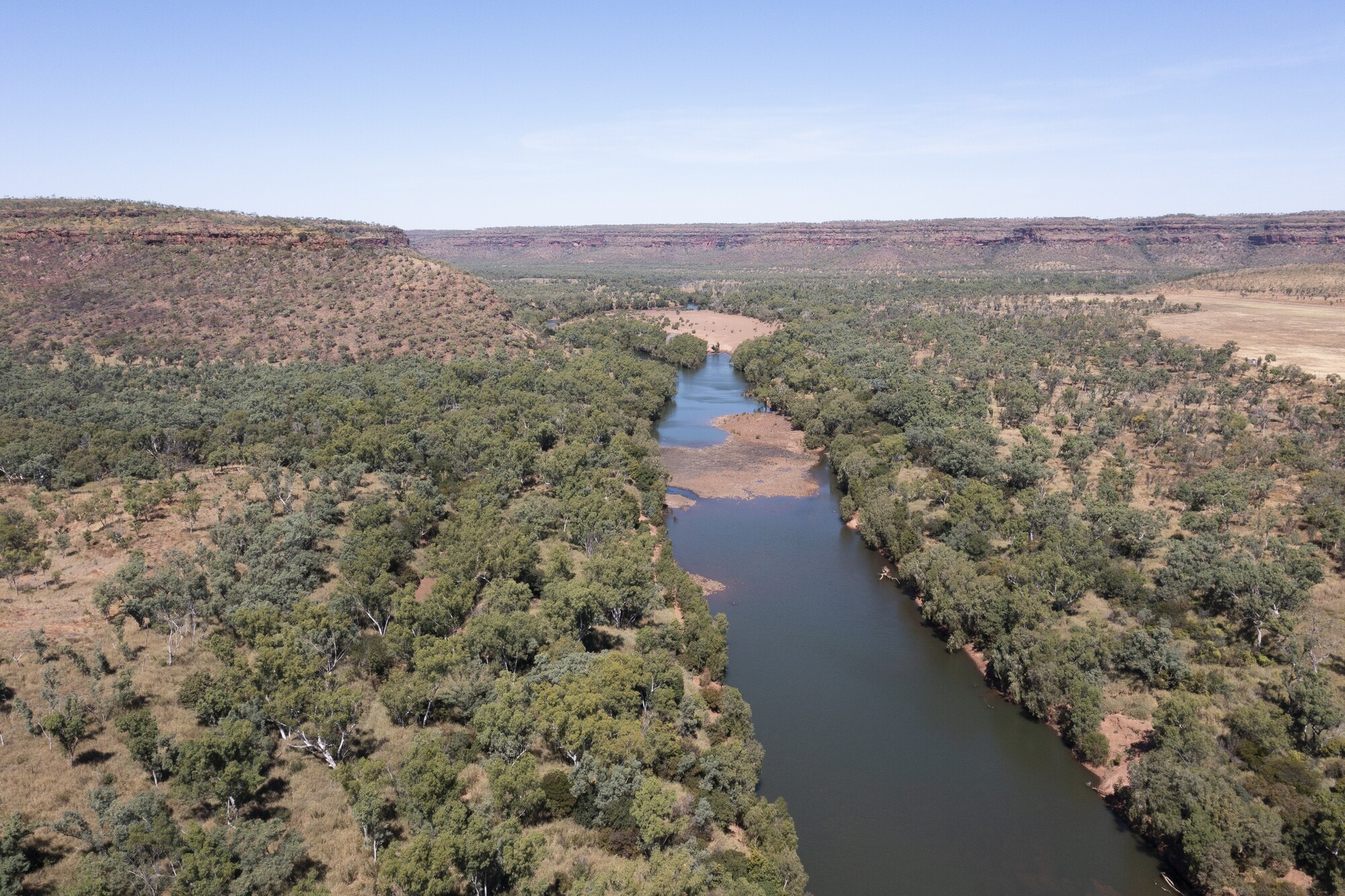
Video: Natural Values of Territory Rivers
Learn moreWitness what makes the treasures of the Northern Territory special! Our pristine rivers are a true natural wonder and are unique in this world.
Unlike elsewhere in the world, Territory rivers like the Daly, Roper, Adelaide and Victoria remain in good shape – they haven’t been dammed, over-extracted and polluted like rivers down south.
The health of these rivers is important for providing drinking water, food, jobs, and underpinning culture.
They also support a wide range of unique species, some of which are not found anywhere else.cotton, cotton industry, Daly River, floodplain harvesting, floodplainharvesting, land clearing, murraydarlingbasin, NT Government, roper river
-

Video: Floodplain Harvesting in the Northern Territory
Learn more“We’re looking down the barrel of a repeat of the Murray-Darling Basin here in the Top End and it’s something that the community is absolutely opposed to.”
Kirsty Howey from Environment Centre NT explains the troubling process of ‘floodplain harvesting’ and why it risks our rivers.
cotton, cotton industry, Daly River, floodplain harvesting, floodplainharvesting, land clearing, murraydarlingbasin, NT Government, roper river
-
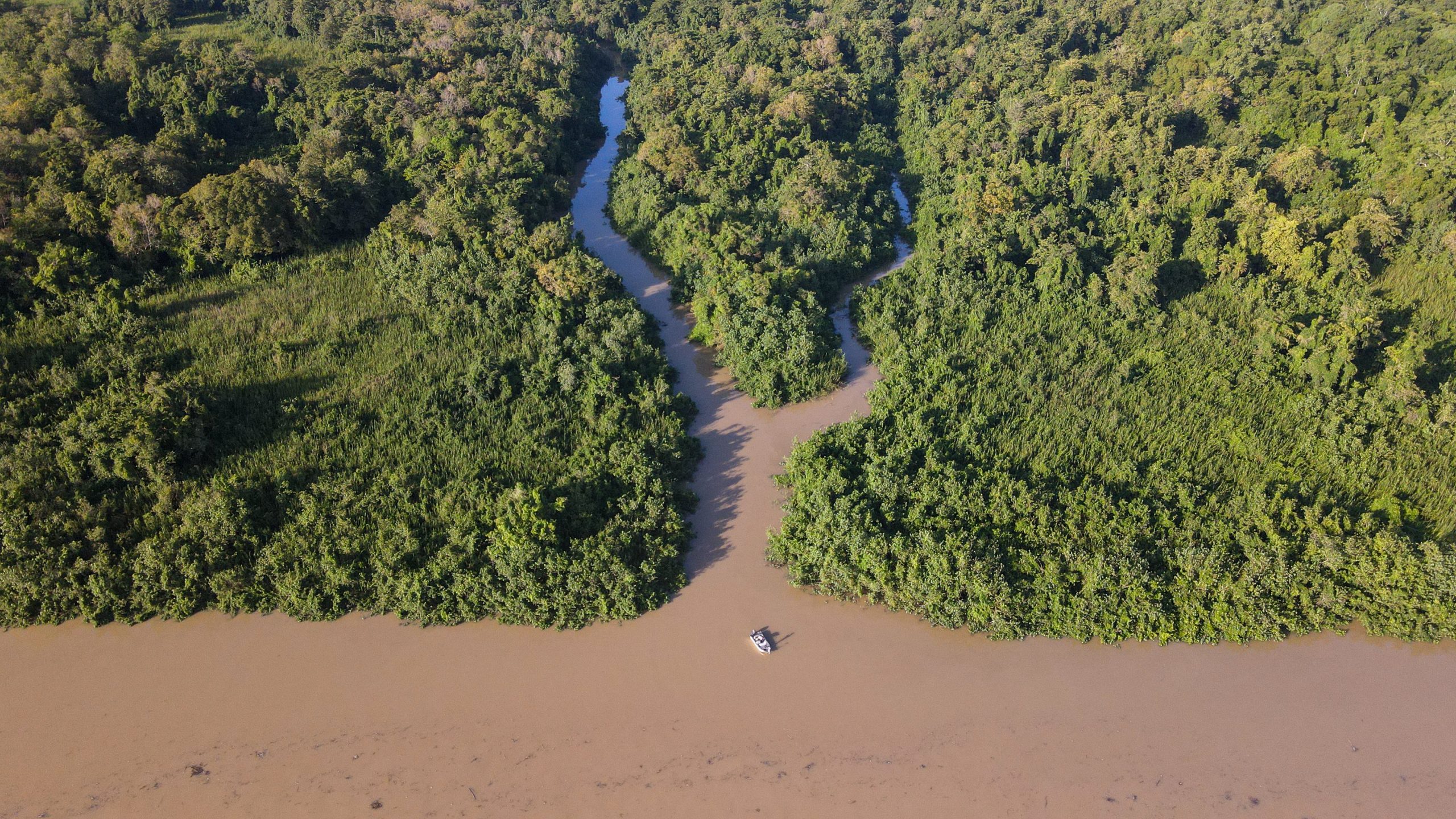
‘NT government-commissioned probe of report predicting cotton environmental impacts finds most claims supported’: ABC
Learn moreRead the story HERE, listen HERE, or watch it HERE.
An independent assessment that the Northern Territory government commissioned to find out whether a green group’s report falsely claimed developing a major cotton industry could damage rivers and aquifers, has found most of its conclusions were correct.
Story by Jane Bardon. (ABC 2 January, 2024).You can sign our action asking the NT Govt to act to protect our rivers, floodplains and surrounding savannas HERE.
cotton, cotton industry, Daly River, environment, floodplainharvesting, land clearing, murraydarlingbasin, NT Government, Territory rivers, waterextraction
-
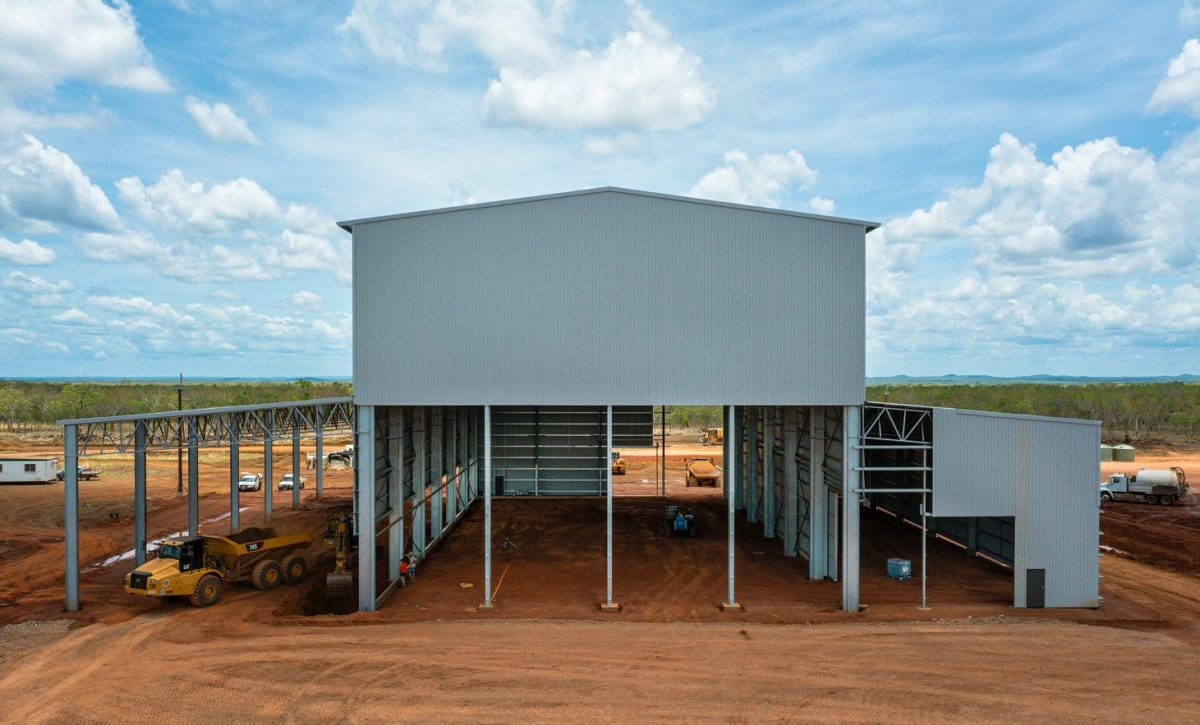
Cotton gin opening increases Northern development tussle: ABC PM
Learn moreListen to the story HERE.
The opening of the NT’s first cotton processing plant is being touted as an important step towards developing the North by the industry, but increasing community concerns over water use.
Interviews:
Sue Brosnan, Katherine cotton gin project coordinator
David Connolly, Tipperary Stations Group General Manager
Rosina Farrell, Jilkminggan Mangarrayi community leader
Kirsty Howey, NT Environment Centre
This report is from Jane Bardon. (ABC PM 15 Dec 2023 ).See updates and developments from this story HERE.
You can sign our action asking the NT Govt to act to protect our rivers, floodplains and surrounding savannas HERE.
cotton, cotton industry, Daly River, environment, floodplainharvesting, land clearing, murraydarlingbasin, NT Government, Territory rivers, waterextraction


